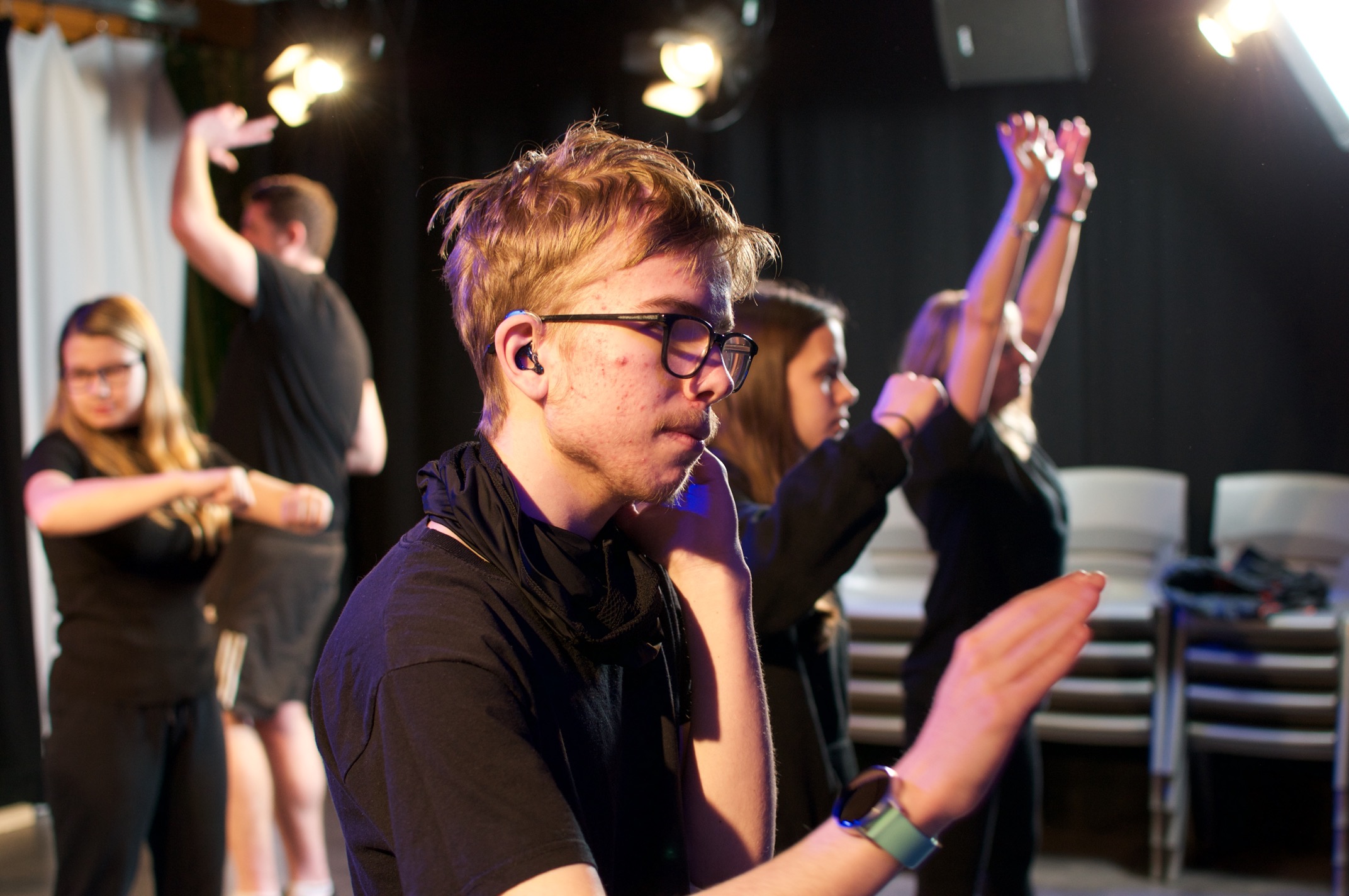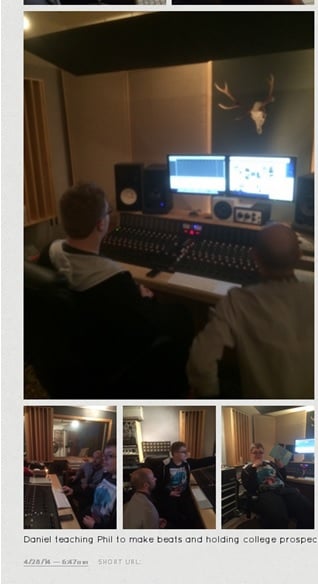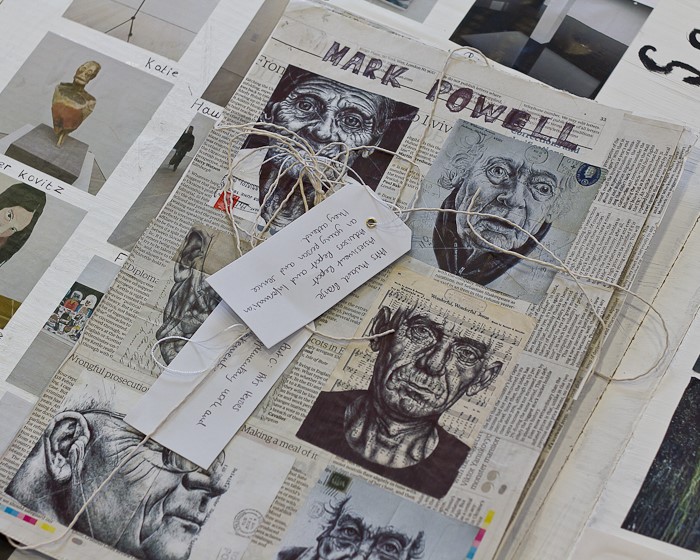
Silver and Gold Arts Award for young people with Special Educational Needs and Disabilities
BY: Kat Stapley-Smith
09 Aug 2022
In a cultural sector where many organisations are looking for ways to genuinely diversify their workforce and/or governance, Silver & Gold Arts Award can help make a difference to how people with learning disabilities are perceived and increase the opportunities that are available to them.
In our recent webinar, Arts Award – Silver & Gold for young people with SEND, we talked about how advisers delivering Silver and Gold in inclusive settings can evidence:
• participation in creative activities
• reflection
• leadership and
• action planning
We also discussed a number of case studies, to give advisers some ideas and inspiration about how other young people with learning disabilities have approached elements of their Silver and Gold Arts Award. We wanted to share some of the tips coming out of these case studies with you.
Tramshed Inclusive Theatre Company
Adviser Emma Rucastle from Tramshed Inclusive Theatre Company delivered Silver with eight young people online. The young people had a range of needs including ASD (Autistic Spectrum Disorder), mental health or anxiety issues, and visual impairment.
Tramshed has a thriving volunteer programme and some young people choose to volunteer there, rather than with other external arts organisations, as it’s an environment where they feel safe and supported but the experience remains a good challenge for them. For the Unit 1 Arts Challenge the young people in the group developed their song writing skills and they built on this for Unit 2, working together to organise a showcase evening. The event acted like a ‘live skills share’ of how to do song writing, with each young person having their own role or area of responsibility such as marketing, compere, gathering audience feedback, etc. Working as a group for Unit 2 worked particularly well for these young people as they felt safer working together rather than organising an event entirely on their own. The young people volunteering internally enabled Tramshed to structure the placement in a way that was mindful of their needs, in this case to enable them to work as a team for Unit 2.
As this group’s Silver Arts Award was delivered online, all the weekly sessions were recorded on Zoom and the young people could put snippets of these recordings in their portfolios, which were saved on Google Drive. They also included typed evidence, witness statements, scribed evidence and observation forms with commentaries. Interestingly they also used the Whiteboard facility in Zoom for some sessions and took pictures of these to use in their portfolios. Emma would ask them a question such as ‘what leadership qualities do you want to develop?’ – each young person would then write something on the whiteboard and share this with the group.
One of Emma’s biggest challenges was to think of alternative ways to communicate with her young people to suit their needs. Some of the young people had severe PDA (Pathological Demand Avoidance) and it was very difficult for Emma to get them to do work on their Arts Award if they were engrossed in another activity. This meant that she had to be very imaginative at working out how to keep their attention on their Arts Award work, for example one young person used a piece of software that transcribes speech to text. Other young people in the group had audio processing issues so it was important to write everything down for them.
Emma recommends considering a hybrid delivery of Arts Award; combining face-to-face and online, as there are advantages to using both. Advisers also need to allow plenty of time to deliver Arts Award as young people with learning disabilities may have processing disorders that mean they need more time to think about what they’ve learnt. She also notes it’s best not to have any preconceptions as your young people will surprise you!
Inspire-All
Adviser Sophie Looijer at Inspire-All teaches home-educated young people and has delivered Silver with a number of students who have ASD and/or selective mutism. Sophie suggests that for their Unit 2 young people could deliver and record a workshop using YouTube at home, where they might feel more comfortable. Or they could organise a small exhibition of their artwork and invite just family members and/or other people they’re comfortable with.
Sophie worked with one young person who has selective mutism to interview an artist. The young person wrote the questions, but Sophie asked the artist the questions at the interview and the young person wrote down the answers. This meant the young person was still able to interview the artist but with Sophie’s help in doing the talking.
City of Rochester School
Adviser Jo D’Amiral from City of Rochester School worked with a young person on his Silver. He is an outstanding photographer and practically very able, but he really struggled with social skills. His main art form photography focussed on cars, so for his Silver Unit 1 arts challenge he wanted to learn how to take photos of people.
Jo set up an opportunity for him to take photos of some familiar teaching staff who were the ‘models’ for him, and he had to direct them (what to do and how he wanted them to stand etc). He really struggled with this, but Jo supported him to set up another session where he become much more confident. Repeating the session and allowing more time enabled him to develop his confidence and communication skills, and to complete this part of Silver.
He ended up exhibiting his work at a parents’ evening which he found really awkward but, with some reassurance, he was eventually able to discuss his work. Completing Arts Award helped this young person overcome the social issues he experienced.
Jo also delivered Gold with another young person, who is a more able student and keen on writing. Due to his learning needs, Jo ‘drip fed’ bits of each unit to him, so as not to overwhelm him and she set a new task for him to do each week. This young person was training to be a Teaching Assistant and for his Unit 2 Leadership project, he utilised a written scheme of work to deliver Arts Award Explore to some younger students. He delivered and evaluated the lessons. He used Google Drive to collate all the evidence for his portfolio which included films of him teaching, written documents, photos, witness statements and observation forms.
Oak Lodge School
Adviser Becky Coultas at Oak Lodge School delivered Gold with a young person who has ASD, was very disruptive in class and very ‘anti-school’. But if he was focussed, the young person was very talented. He refused to attend drama lessons for a year but then attended a school trip to see a live theatre show, which changed everything. He loved it and was inspired to start going to drama lessons, auditioned for the school play and got one of the leading roles! He joined an external drama group where he learnt a number of warm up exercises. As part of his Gold Unit 2, he taught these warm ups to his peers. He is now studying performing arts at Solent University and is full of confidence – all off the back of achieving an Arts Award! Becky believes that Arts Award has opened up doors for so many of her young people and helped them discover something they are passionate about.
Top tips:
• Concentrate and build on what your learners can do – rather than what they can’t - and work from there!
• How you develop Arts Award is up to you and your learners – over time you will develop the approaches and structures that work best for your learners
• Think creatively about how evidence can be gathered and shown
• Evidence can be presented in lots of ways that are not dependent on reading, writing or verbal skills
• Be confident in using the expertise and knowledge you have already in order to make Arts Award accessible to your learners
• Some of the most creative, innovative and important Arts Award projects take place in SEND contexts.
You can watch back the whole webinar ‘Arts Award - Silver & Gold for young people with SEND’ here (you will need to register your details) and this blog has links to lots of relevant resources, further information and inspiration for advisers working in inclusive settings.
Image: Manor Green College by Daniel Tidbury
Related posts
BY: Alan Lynch
BY: Guest Writer




Comments & Replies